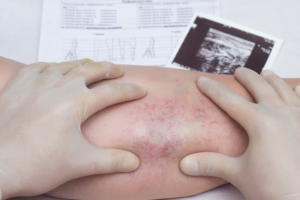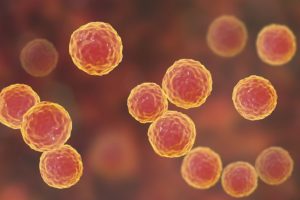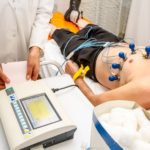 Varicose and spider veins are unsightly and sometimes embarrassing. It’s easy to consider them just a visual issue and dismiss them. The problem is that they are a medial issue that can become worse over time. The time to stop them is now.
Varicose and spider veins are unsightly and sometimes embarrassing. It’s easy to consider them just a visual issue and dismiss them. The problem is that they are a medial issue that can become worse over time. The time to stop them is now.
Varicose veins don’t simply appear because you have hit a certain age. They are being cased by something physical going wrong. Varicose veins are damaged veins.
The underlying physical cause is important because without knowing the cause it is difficult to alter behaviors or lifestyle which can potentially help quell the uprising. Things like smoking cigarettes, drinking alcohol in excess, standing or sitting for very long periods of time, excess stress on the legs due to non circulation of being seated for long flights or road trips, and bad fatty chemical-laden diets can all come into play.
Vein disease may also be genetic and hereditary. If your parents or grandparents had vein issues you are at a raised risk level yourself.
Many people mistakenly believe that spider veins and varicose veins are simply a cosmetic issue and from that thought, also conclude that treatment would be cosmetic in nature and therefore not covered by their medical health insurance. The truth of the matter is that it is a medical condition called Venous Insufficiency ie. Vein disease. It isn’t just cosmetic and over time it can morph from just visual into aching, painful, itchy legs that range from annoying to debilitating.
The best time to halt vein problems in their tracks is as soon as they start. Talk with your insurance company and go see your local Vein Specialist for a consultation and diagnosis so you can see what exactly you are dealing with and what your options are. Most vein issues the treatment is covered by your insurance leaving you with only a copay for the office visit.
If you are in the Tampa Bay/Safety Harbor, Florida area we would love to meet with you. Dr. Mark Zuzga is one of the top leading experts in vein care here in Florida and can get your legs back to the best state of health possible in a short amount of time.
Give us a call at 727-712-3233 or visit us on the web to learn more about our services and practice by going to www.westfloridaveincenter.com.


 Infective Endocarditis is an infection of the endocardium, by way of bacteria or fungus. It often leads to the onset of symptoms such as fever, anemia, heart murmurs, petechiae, and embolic phenomena.
Infective Endocarditis is an infection of the endocardium, by way of bacteria or fungus. It often leads to the onset of symptoms such as fever, anemia, heart murmurs, petechiae, and embolic phenomena.
 Ready to take the leap and commit to heart health? It isn’t as challenging as you think. Just follow these tips for ultimate heart health!
Ready to take the leap and commit to heart health? It isn’t as challenging as you think. Just follow these tips for ultimate heart health!
 Anxiety disorders affect 40 million adults in the USA.
Anxiety disorders affect 40 million adults in the USA. 
 Pelvic Congestion Syndrome is a chronic medical condition that affects nearly 1/3 of all women at some point during their lifetime.
Pelvic Congestion Syndrome is a chronic medical condition that affects nearly 1/3 of all women at some point during their lifetime.

 Sugar hits the pleasure center of the brain in the same way that hard drugs do. This makes refined sugar extremely addictive and very hazardous to your health. Moderation is key and elimination even better.
Sugar hits the pleasure center of the brain in the same way that hard drugs do. This makes refined sugar extremely addictive and very hazardous to your health. Moderation is key and elimination even better.
 What is a heart murmur? Common conditions can make your heart beat faster and that can lead to the onset of a heart murmur. They can happen if you become anemic or pregnant, have an overactive thyroid, a high fever, or high blood pressure.
What is a heart murmur? Common conditions can make your heart beat faster and that can lead to the onset of a heart murmur. They can happen if you become anemic or pregnant, have an overactive thyroid, a high fever, or high blood pressure. 
 In today’s day and age here in 2018, many of us lead a very sedentary lifestyle. Additionally adding to the stress on our bodies we, as Americans, are prone to a diet that lacks basic nutrition of processed or fast foods. We are a nation on the go and our bodies are paying the price. This is evident by the fact that heart disease remains one of the foremost reasons for death in the country.
In today’s day and age here in 2018, many of us lead a very sedentary lifestyle. Additionally adding to the stress on our bodies we, as Americans, are prone to a diet that lacks basic nutrition of processed or fast foods. We are a nation on the go and our bodies are paying the price. This is evident by the fact that heart disease remains one of the foremost reasons for death in the country.